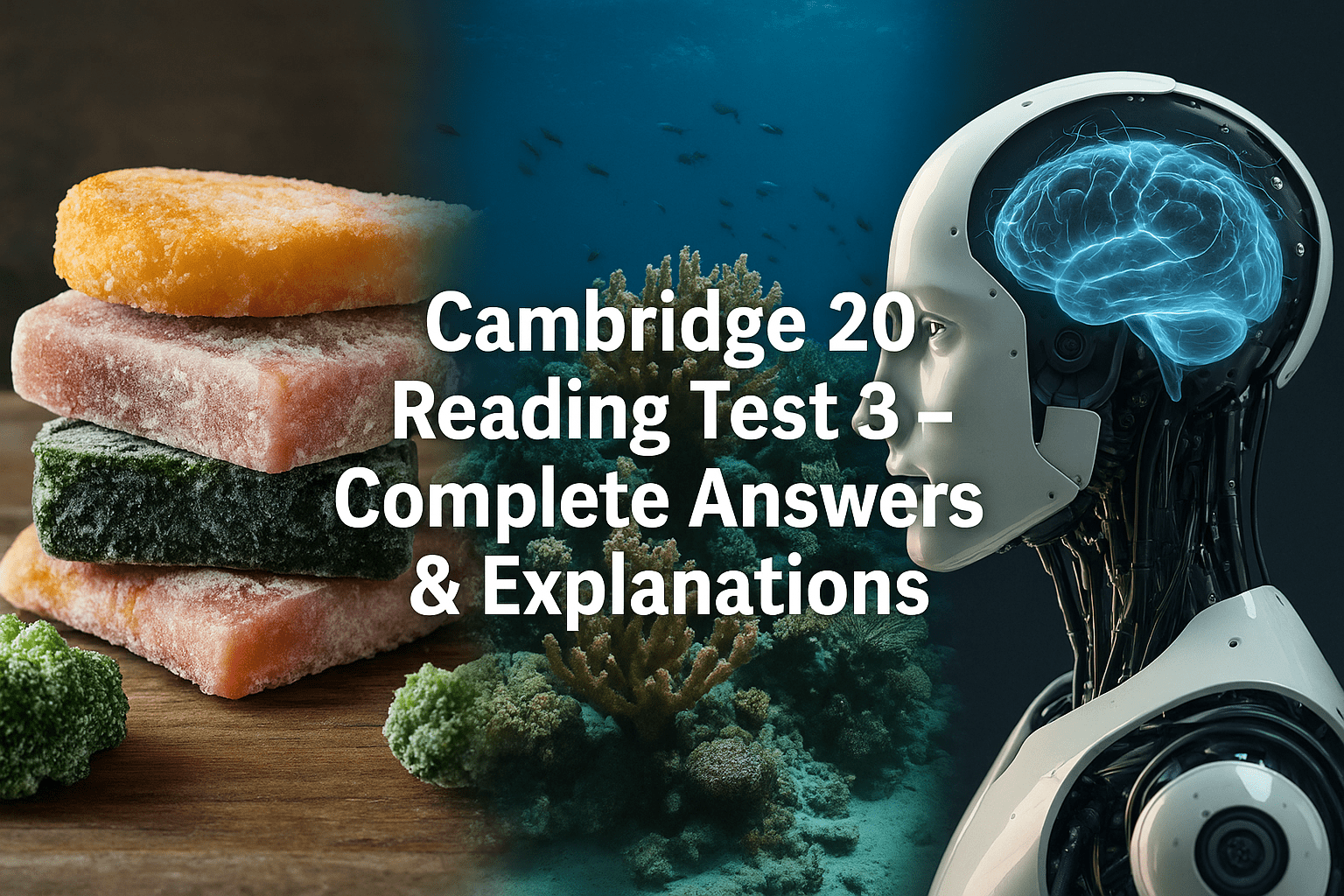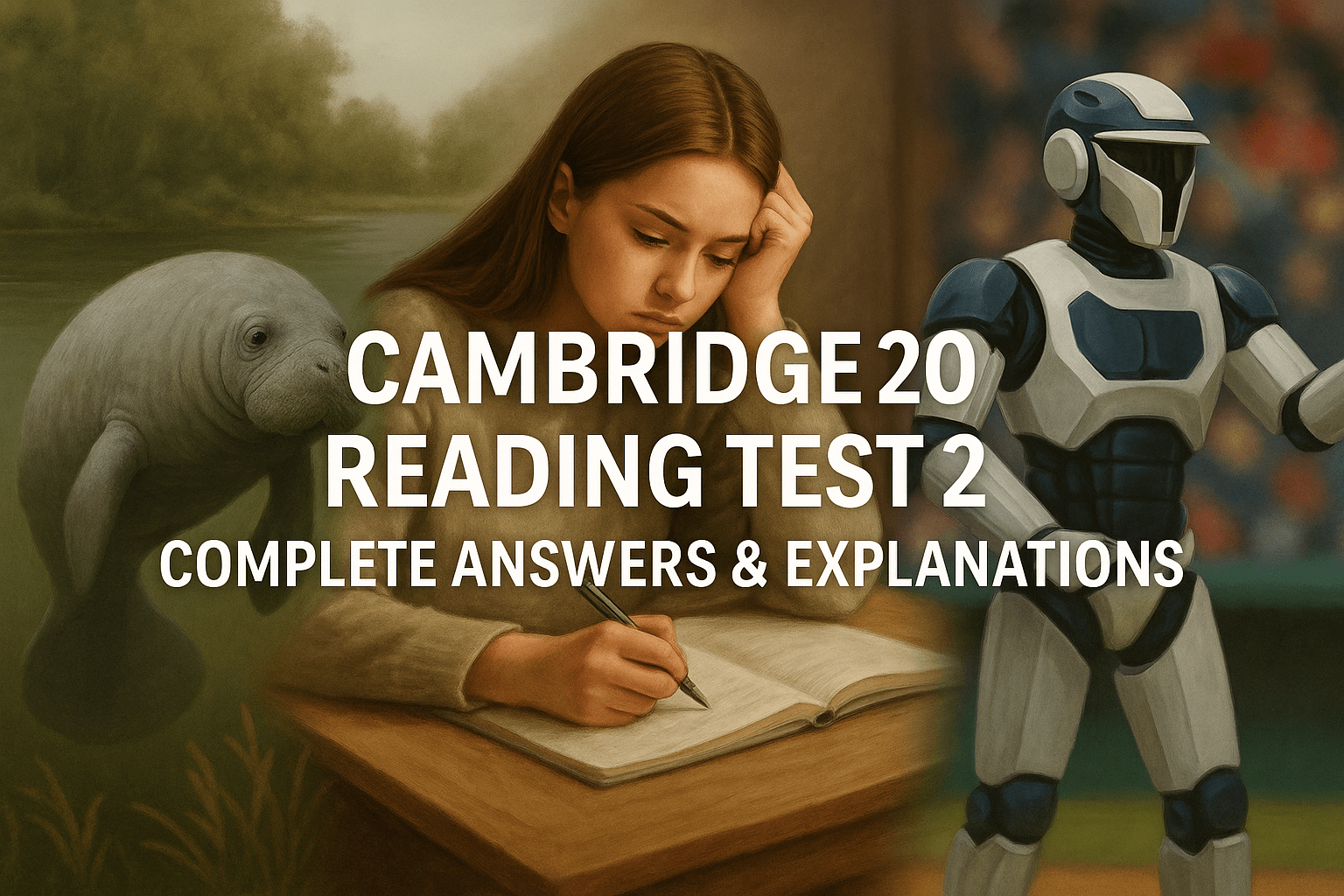When it comes to IELTS reading MCQ, many of my students initially feel overwhelmed by the long options and similar-looking answers. Over the past decade teaching learners from Asia, Europe, and the Middle East, I’ve noticed that multiple-choice questions are where students either make careless mistakes or spend too much time reading every option in detail. In this blog, I’ll share practical IELTS reading multiple choice tips that have helped my students consistently achieve Band 7+.
Why Multiple Choice Questions Feel Tricky
One of my students, Ahmed from Egypt, once told me he always lost marks on MCQs even though he understood the passage well. His problem was reading every option fully before finding the text evidence, which wasted time and caused confusion.
The key to success is working with the text first, using techniques like keyword scanning and the elimination method, rather than trying to “guess” the answer from the options.
If you’re completely new to the test, I recommend first reviewing the official IELTS Reading format and our IELTS Reading Question Types Guide to understand how MCQs fit into the exam.
Step 1: Scan for Keywords Before Reading Options
When I coach students for IELTS reading MCQ, my first tip is: don’t start with the options.
- Read the question and underline the keywords.
- Scan the passage for synonyms or paraphrases of those keywords.
- Only then, check which option matches the context.
For example, if the question is:
“Why did the scientist repeat the experiment?”
The options might include:
A) To confirm earlier results
B) To test a new theory
C) To impress other researchers
D) To follow the supervisor’s advice
In the text, the phrase might be: “The experiment was conducted again to validate the initial findings.”
A student who scanned for validate and initial findings would quickly connect it to A) To confirm earlier results.
For more keyword scanning techniques, check out our IELTS Reading Skills for Band 7–9.
Step 2: Master the Elimination Method
One of the most powerful IELTS reading multiple choice tips I teach is process of elimination (POE).
Here’s how it works:
- Identify two obviously wrong options first.
- Focus your attention on the remaining two.
- Use text evidence to decide which is correct.
Many of my students reach Band 7+ because they spend less time choosing between four options and focus on verifying evidence in the text instead.
Step 3: Handle Long Options with Strategy
A frequent complaint I hear is:
“Teacher, the options are too long! I get lost in the reading!”
Here’s my solution:
- Break the option into parts.
Example: “The government introduced the law to protect local farmers and stabilise food prices.” - Identify the core idea: law → protect farmers → stabilise prices.
- Match that idea with the passage instead of memorising the whole sentence.
Students who follow this approach stop panicking when faced with long and confusing MCQs.
Step 4: Time Management for MCQs
MCQs can be time traps if you’re not careful. I train students to follow this timing approach:
- Spend 30 seconds scanning the question for keywords.
- Spend 60–75 seconds locating evidence and eliminating wrong options.
- If unsure, make a strategic guess and move on.
Remember, unanswered questions are guaranteed mistakes, but a guessed answer still has a chance to be correct.
Extra Tip: Build Vocabulary and Paraphrasing Skills
Most MCQ answers are paraphrased, not copied from the text. A passage might say “The manager criticised the delay”, but the option might say “The manager expressed dissatisfaction with the project’s timing.”
Improving your reading vocabulary is crucial. I’ve created a guide specifically for this: IELTS Reading Vocabulary for Band 7–9.
Quick Recap
To ace IELTS reading MCQ:
- Scan for keywords first, then read options.
- Use the elimination method to narrow choices.
- Break down long options into core ideas.
- Manage your time to avoid last-minute panic.
- Strengthen your paraphrasing skills for accurate matches.
For further reading, explore British Council IELTS or IDP IELTS for official practice tests.
FAQs About IELTS Reading MCQs
1. How many MCQs appear in the IELTS Reading test?
Usually 3–6 questions, depending on the passage and question type mix.
2. Should I read the passage first or the options first?
Always start with the question keywords, then scan the passage, and check options last.
3. How can I avoid traps in similar-looking answers?
Focus on exact text evidence. Even a single word can change the meaning.
4. Can I get Band 7+ if I struggle with MCQs?
Yes. If you use keyword scanning and elimination consistently, you can turn MCQs into scoring opportunities.
This strategy has helped hundreds of my students achieve Band 7+ in the IELTS Reading test, and it can do the same for you.





